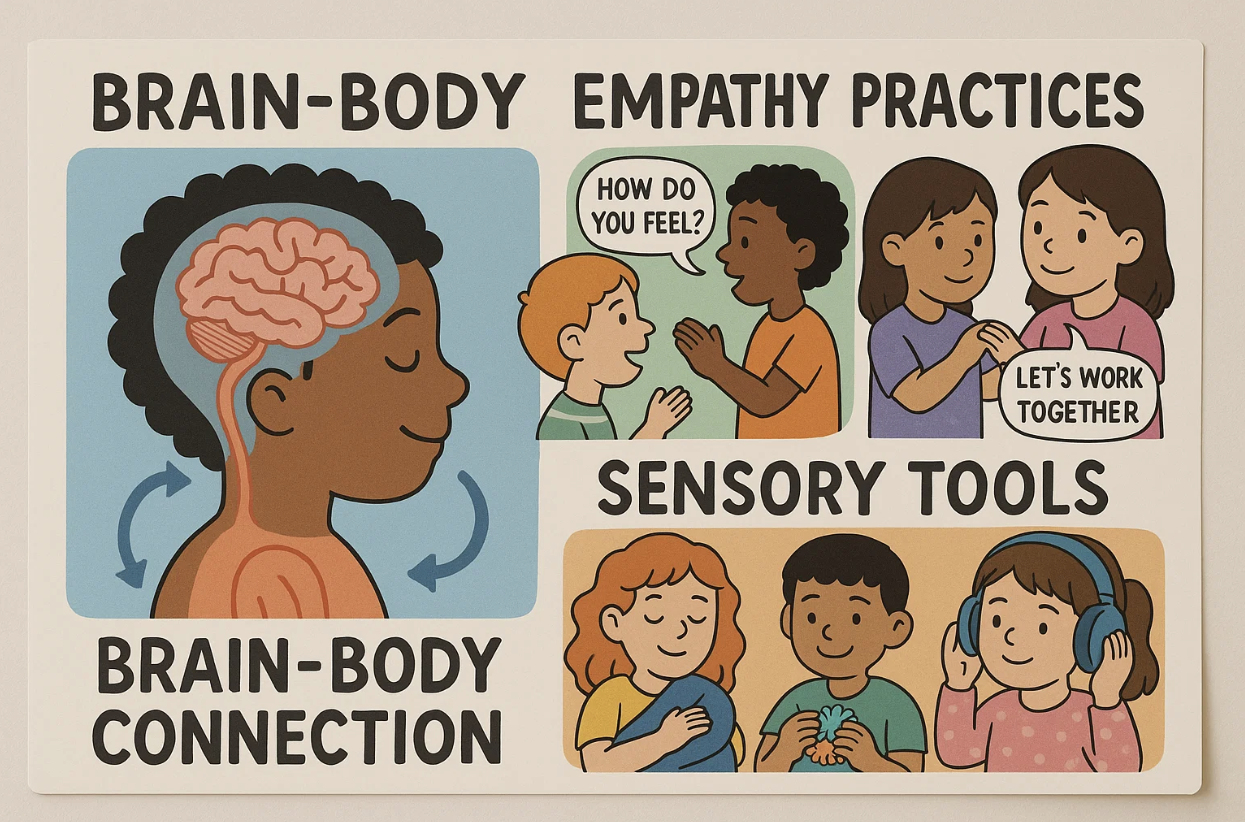If your child has ever been told this by an educator, a family member or even you in a moment of frustration, then this information below may be an interesting perspective.
At Trauma Free Tree we believe in giving space for big feelings while not overwhelming the child or others.
Highly Sensitive People (HSPs) are individuals who have a heightened sensitivity to stimuli, both emotional and sensory. This trait, which affects around 15-20% of the population, can be particularly relevant for children in educational settings. When it comes to Highly Sensitive Kids (HSP kids), they may experience the world more intensely than others, and their needs may require specific consideration in both home and school environments.
Here are some key aspects of HSP kids and how they may benefit from micro schools:
Traits of HSP Kids:
1. Deep Processing: HSP children tend to think deeply about their experiences and emotions. This can make them more reflective but also more prone to feeling overwhelmed if they are not given enough space to process.
2. Sensitivity to Stimulation: They may be more sensitive to loud noises, bright lights, strong smells, or chaotic environments. This can make crowded classrooms or noisy hallways difficult for them.
3. Empathy: HSP kids are often very empathetic and sensitive to the emotions of others. They may be affected by the moods of their peers or teachers.
4. Overstimulation and Stress: Due to their heightened awareness, HSPs can become easily overstimulated or stressed in environments that are too busy, noisy, or emotionally intense.
5. Need for Downtime: HSP children often require more time alone or in calm environments to recharge after being in stimulating situations. Without this, they may become fatigued or emotionally overwhelmed.
How Micro Schools Can Benefit HSP Kids:
1. Smaller Class Sizes: Micro schools often feature smaller, more intimate classrooms, which can reduce sensory overload from noise and visual distractions. This allows HSP kids to feel more comfortable and focused.
2. Personalized Attention: Teachers in micro schools typically have fewer students, allowing them to better understand each child’s unique needs. For HSP kids, this means their teachers can recognize when they’re becoming overstimulated or need a break.
3. Flexible Schedules: Many micro schools offer more flexible schedules and less rigid routines. For HSP children, this flexibility can allow for periods of rest and rejuvenation, which is crucial for their well-being.
4. Less Bureaucracy and Structure: The more relaxed environment of a micro school can lead to a reduction in the stress that HSPs might feel from strict schedules or rules. They can thrive in an environment that values self-paced learning and emotional regulation.
5. Supportive Environment: Micro schools tend to foster a strong sense of community and emotional connection between students, teachers, and parents. For HSP kids, this supportive, compassionate environment can help them feel understood and validated, reducing stress and anxiety.
6. Tailored Learning: HSPs often need a more individualized approach to learning. Micro schools can offer customized lessons and activities that cater to the unique sensitivities and interests of each student, promoting engagement and reducing feelings of frustration.
7. Calm, Focused Atmosphere: The smaller scale and often more relaxed structure of micro schools can help mitigate sensory overload. This calmer atmosphere can make it easier for HSP children to concentrate and succeed academically.
8. Holistic Approach: Many micro schools emphasize emotional intelligence, mindfulness, and social-emotional learning, which can benefit HSP kids by helping them understand and manage their sensitivities in healthy ways.
Challenges for HSP Kids in Micro Schools:
While micro schools can provide many advantages, there may be some challenges for HSP kids to consider, such as:
• Limited Social Interaction: In very small schools, HSP kids might have fewer peers to interact with, which can sometimes feel isolating.
• Less Access to Resources: Micro schools may not have the same access to specialized services or extracurricular activities that larger public schools offer, so it’s important to weigh this factor.
In conclusion, for Highly Sensitive Kids, micro schools often provide a nurturing and tailored learning environment that minimizes overstimulation and promotes emotional well-being. However, it’s important to choose a micro school that aligns with the child’s specific needs and sensitivities.








